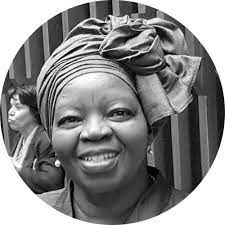
Angola gets a second look

By Lloyd Green
Despite severe challenges, including a devastating 27-year civil war, Angola is getting a second look by foreign investors.
Italian oil company Eni recently began production at its East Hub offshore project and is also building a gas liquefaction plant in Angola. Total, the French energy concern, invested US$16 billion in an ultra-deep offshore project together with China’s Sinopec, and Exxon Mobil’s Esso. The list goes on.
Angola’s government is friendly to foreign direct investment as it works to diversify away from natural resources as its primary income source. All investors, foreign or otherwise, have the same access to government incentives, including relief from industrial and capital gains taxes.
In 2000, per capita income in Angola was just over US$350. Today, the figure exceeds US$4,100. Angola, with its 25 million citizens with a long coastline on the south Atlantic and a youthful, largely Portuguese-speaking population, is the seventh largest economy in Africa. Primary school enrollment has steadily climbed over the past two decades. Life expectancy has improved for more than half a century, rising to 52 years from 32 years in 1960.
A middle class has developed in Angola, driving a growing demand for consumer goods, housing and financial services. The Belas Shopping Mall in Luanda has emerged as a major local destination. Angola’s bank deposits have increased from a fifth of the economy in 2005 to nearly half in 2013, according to an International Monetary Fund study. During the same period, bank loans rose from 5 percent of the Gross Domestic Product to nearly a quarter of the country’s output.
Angola’s economy is oil dependent. Oil generated more than US$60 billion in revenues in 2014. At the same time, the Angolan government understands both global trends and political demands at home. In the face of falling oil prices, the government reduced fuel subsidies, which had primarily benefited the wealthy, and expanded the Cartão Kikuia social protection fund, which is aimed at families headed by women.
Expanding the non-oil sector – and attracting new foreign investment to it – is vital for Angola’s future. Agriculture is one such opportunity. The United States Agency for International Development says Angola has “tremendous agricultural potential” and “could become a powerhouse for regional trade and investment.” Commercial fishing is another sector that has potential with fishing representing about 1.7 percent of the country’s GDP.
Meanwhile, the International Monetary Fund expects 1.3% growth in Angola’s non-oil sector this year, up from -0.4% last year. If oil prices rebound, as many expect, the economy will grow even faster.
Angola is technologically advanced. It has 71 mobile telephone subscriptions for every 100 inhabitants and is experiencing increased internet use. The country is also relatively healthy. Angola has an AIDS prevalence rate of only 2.17%, a very low figure for southern Africa. Thanks to post-war construction, it also has modern water and sanitation facilities in urban areas. The components of social cohesion are there for the investment community to see.
In January, Angola achieved US$950 million in oil exports – over 52.5 million barrels per day – the highest level in 16 months, thanks to an uptick in demand from India as well as greater exports to China. In fact, the country is second among oil exporters to China, slotted between Saudi Arabia and Russia.
In a sign of respect and importance among its African counterparts, Angola served on the United Nations Security Council in 2015-2016. Following peaceful elections in 2012, the country will hold elections in August, marking a transition to the next generation of leadership. President Dos Santos, who has led the country since independence, will retire. Defense Secretary Joao Lourenco has emerged as the frontrunner, making a peaceful transition of power likely in one of Africa’s largest and most strategically important countries. According to the Economist Intelligence Unit, Angola has shown real progress in political liberalization.
After the electoral transition, Angola will look to its future and continue to welcome foreign investment. As China and India deepen their own economic ties across Africa, investors should consider Angola as a gateway to the African Continent.
About writter: Lloyd Green was staff secretary to the George H.W. Bush campaign’s Middle East Policy Group in 1988, and served in the Department of Justice between 1990 and 1992.












































